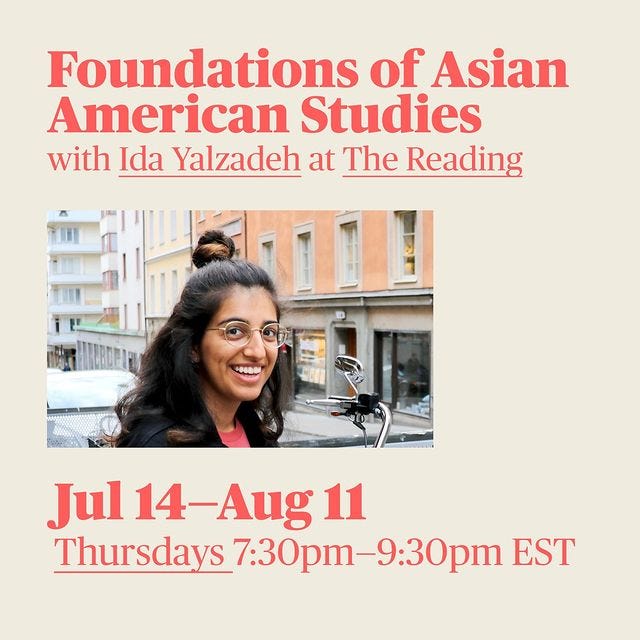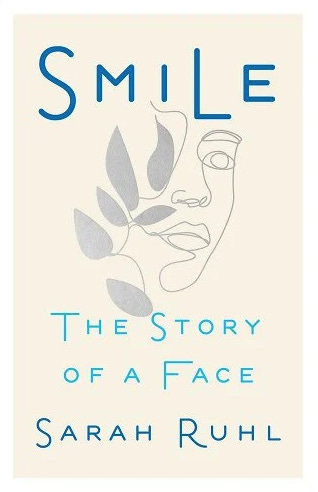Hello, and happy Monday.
This week, I wanted to share some thoughts with you that I managed to glean from what I shared with you last week re: tidying my digital workspace. While last week’s letter was all about the different apps that I’m using as a part of my new workflow this summer, this week I am focusing on the functions and feelings of the ways that I work day-to-day.
✏️ Still processing.
During the process of setting goals and intentions for the summer, I decided to take an inventory of the different apps (which I call “mediums”) that I use on a daily or weekly basis. Rather than list the apps on my computer and then think about how I used each one, I decided switch this process. I instead began first with the things that I use a computer for. This approach allowed me to recognize that my computer is a tool in the accomplishment of my goals. In other words, I was trying to engage in a function-centered (rather than app-centered) exercise.
I wrote a list of larger headings that grouped similar sorts of activities together.* Underneath those headings, I wrote the specific parts of my workflow that composed the larger chunks of my day. It ended up looking something like this:
As I took a scan of my list, I realized that I now exclusively draft all my writing—whether it is a guest lecture or a part of my manuscript—on Google Drive. If you’ve read my zine, you know that I drafted the entirety of my dissertation on Microsoft Word. As I reflected on this, I was interested to dig more into the reasons why I made this switch so absolutely.
After some journaling, I ended up finding that there were two reasons why I had switched from Word to Docs in my time after grad school.
First, I noticed that I have always associated Google Docs as being a space of play and collaboration. Looking back to my time in grad school, I only used Docs when I was collaborating with my friends on events or writing. It was what my good friend Maggie U. and I used to bring Roxane Gay to campus from initial idea to execution, the whole process of which lives in my brain as a fond memory. It was where we jotted down ideas and drafts and questions and excitement. We suggested changes to each others’ prose, wrote comments of encouragement, and (later on) shared those docs as templates with our friends who were looking to put on a similar event. It was also a place where I would open up a new document and begin writing random ideas down for my dissertation like it was nothing. The blank page in Docs, it seems, was associated with experimentation—where I allowed myself to try and fail and sometimes even get something notable down. It was where I made comments and meta comments. It was where I could write and everything felt ephemeral and malleable.
Second, I noticed that I had started associating Word with evaluation and anxiety. Word was the program where I have always drafted all my job documents before converting them to PDF. (If you are not an academic but are interested in learning more about the very unique experience that is the academic job market, you can find some info on this here and here and here.) It’s a difficult experience—one that produces a lot of anxiety and stress. These documents have never been my favorite things to write, though if I am being generous, they have helped me articulate my project in helpful ways. However, the feelings that I associate with these documents—and, by extension, the platform on which they were produced—is not the best. I know this sounds dramatic, but to open up a new word document is to stare into the void/abyss/darkness/choose ur fav adjective. More than that, though, I associate Word with the medium through which I am evaluated, whether it be for job candidacy or for a piece of writing that I submit to a journal, book editor, etc etc. I have found that this is not the best state for me to be in when I am trying to craft my ideas and my writing.
For me, neither of the reasons that I talk through above really have to do with aesthetics, software features, or anything “objective” about the mediums. Rather, the reasons capture the ✨feelings✨ that I associate with each medium based on where I am (and was) in my academic journey.
For instance, I want to re-acquaint playfulness and collaboration into my manuscript writing. This means:
Writing in a medium that brings me fond memories of community-oriented and curiosity-driven moments. In the act of remembering, I feel that I can do it again.
Allowing the blank page to be filled by thoughts that can shift in form—bulleted lists, different headings, colorful prose, jumbled freewrites. Anything but: Times New Roman, 12 pt, double-spaced with one-inch margins
Easily sharing my documents with friends and mentors with whom I am comfortable. Having the agency to change whether they can view, comment, or edit a document—which allows me to be more intentional with what feedback I want to receive.
I also think that it demonstrates that I need a different app for different functions of my profession. When I am in “job mode,” I should only see Word documents on my desktop. When I am in “writing mode,” I should have Google Docs in front of me.
If you take away anything from this reflection, I hope it is that you consider how medium matters in your own work practice. Perhaps journaling around the feelings you have with each function of your profession or each app you use can open up a new understanding of your workflow and what feelings arise within you. How do you want to feel when you see a window on your screen? Does that impact the way that you perform that particular function? If needed: what are some ways you can switch it up for the better.
*You may recognize these verbs from a video that Ali Abdaal uploaded a few months ago on his productivity system. I want to honor that I received this framework for thinking about my workflow from this video. However, I also do not want to link to this without acknowledging that I have mixed feelings about his work and the work of other “productivity gurus.” I dip in and out of this content, taking what works for me, and try to stay conscious of the fact that they have material incentives to talk about the latest app, idea, or system.
🌀 Still consuming.
Currently on my to-read list:
Joshua Sooter on teaching US empire in the classroom.
How Shin Yu Pai (podcast host and producer for KUOW Public Radio) does history.
Zeb Larson on the limitations of being an “independent scholar.”
📖 Book club corner.
Friends! The people have spoken! For June’s book club, hosted by Tyler B., we will be reading Smile: The Story of a Face by Sarah Ruhl! I’m so excited!! Feel free to purchase the book here, and the details are below!
Here’s the event info:
Date & Time: Tuesday, June 28 @ 5PM PST/8PM EST
Registration Link!
Suggested Donation (for those able to donate): $3-10 through Paypal or Venmo (@idyalz) (A note that 100% of donations will go to Tyler!)
If you are interested in facilitating a book club and have been to more than two book club meetings, feel free to reach out to me!
You can learn more about the tiny driver book club here!
🐶 A pup-date.
Higgins celebrated his 9th birthday this weekend! Of course, he got himself a very nice birthday treat. Happy birthday, Mr. Higgie Boy! I love you so much. 💖
As always, thanks so much for reading through, and I'll see you in the next one!
Warmly,
Ida










Oh my, I have the same feelings associated with Word and Google Docs like you do.
I feel a repulsion or aversion when I open a Word document and even stronger respond if it's filled with a lot of comments. I noticed I have this kind respond after I finished my master's.
Google Docs on the other hand filled with peer comments, gratitude notes, and sometimes unimportant banters so yeah, it felt like a playground.
Thanks for the letter, I thought my automatic respond was overblown before.
I’ve never looked back since moving from Word to iA Writer, In fact any markdown editor will do, I find it is the cleanest, simplest and most efficient way to write, I feel much more productive and it’s still easy to export to other formats.